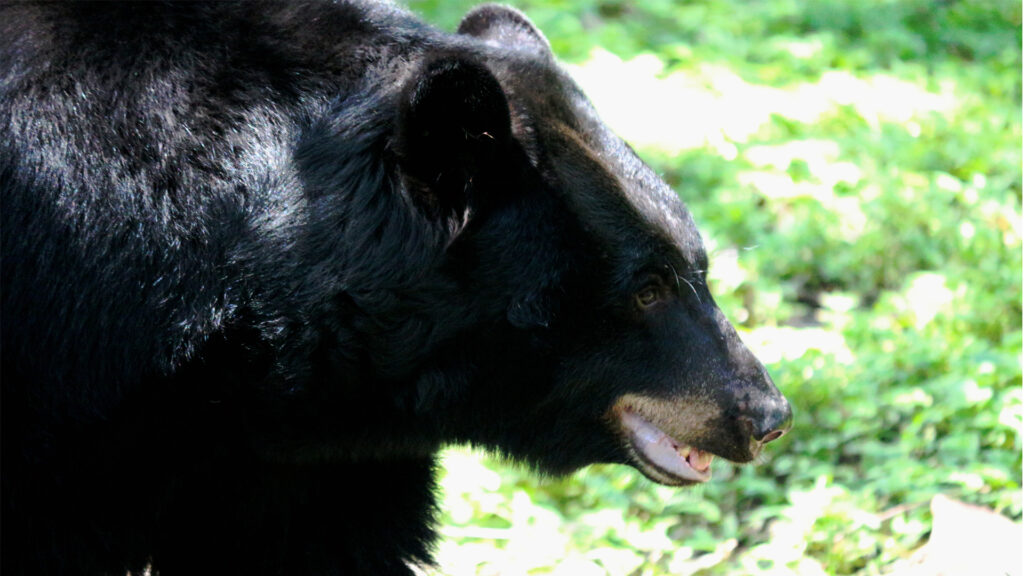By Elise Bennett, Center for Biological Diversity
Florida is once again barreling forward with a proposed black bear hunt that would start this year and continue for years to come. The Florida Fish and Wildlife Conservation Commission owes it to the people of our state to allow our voices to be meaningfully heard as it makes this important decision.
I was one of dozens of Floridians huddled in a meeting room on May 21 waiting to urge the commissioners to abandon their hasty and unjustifiable bear hunting proposal.
The commission only provided two days for the public to review the proposal and submit written comments, and in-person comments were limited to one minute. Like so many others at the meeting, I was cut off before I could say much of anything.
That’s why I’m taking this opportunity to share my thoughts about this thoughtless proposal now.

At a time when Florida has entertained developing state parks and trading away precious conservation land, Floridians’ confidence in our conservation officials is understandably shaky. Our wildlife officials should make thoughtful, commonsense and science-based decisions, but it’s been clear from the beginning that this proposed bear hunt was the pet project of a single commissioner.
During the commission’s December meeting, staff described a statewide bear population that’s moving in the right direction, but three of seven subpopulations are still too small to ensure their long-term genetic health. They explained that there’s still plenty of habitat for our black bear population to sustainably grow and described how prevention and management of human-bear interactions have been widely successful.
But despite that welcome news, information on statewide bear populations is incomplete and won’t be finished for several years. Accordingly, staff had no recommendations to alter the current management strategy.
Nevertheless, Commissioner Gary Lester requested that staff develop a bear hunting proposal.
It appears to me that staff have since been scrambling to reverse engineer a justification for the proposed hunts. The line they’ve come up with claims a need to “balance species numbers with suitable habitat and maintain a healthy population.” But there was clearly enough habitat when they presented in December. It doesn’t add up.
And having complete population data is critical to the commission’s own black bear management plan goals, which have yet to be met. The plan calls for maintaining black bear populations that are sustainable long-term in habitats throughout Florida. A major part of reaching that goal will mean supporting interconnected groups of bears to ensure their genetic flow and health.
Unfortunately, three of the bear subpopulations are currently too small to persist on their own. For example, the South-Central bear subpopulation badly needs to grow and connect with the nearby South and Central subpopulations, where hunting is proposed.
Authorizing a hunt before the commission even meets its own modest recovery goals is downright irresponsible. At the very least, commissioners must closely analyze and explain how killing bears in these nearby populations won’t harm the agency’s own longstanding work to increase bear immigration between populations.
It’s clear that the risks of this hunt far outweigh any supposed benefits for Florida’s awe-inspiring black bears.

It’s also baffling that the commission seems to have learned nothing after the last time it hastily authorized a hunt in 2015. Many of the warnings Floridians raised at commission meetings then sadly proved true. The hunt was an incompetent and savage disaster where quotas were surpassed and still-lactating mama bears were executed, condemning an untold number of cubs to an uncertain fate.
Floridians are back again with real concerns about this rushed proposal that’s being sold as “conservation management.” We’re not buying that, and neither should you.
The commission only needs to wait a few more years to have updated, range-wide bear population information. In the meantime, it should recommit staff to their admirable work in managing human-bear interactions and bolstering the weaker bear subpopulations.
All we’re asking for is a thoroughly considered, science-backed proposal. Commissioners must take the time to do their job right. Now is the perfect time to start earning back the public’s trust.
Elise Bennett is a senior attorney and the Florida and Caribbean program director at the Center for Biological Diversity. Banner photo: A Florida black bear triggers a remote camera set by biologists in the Ocala National Forest (Florida Fish and Wildlife Conservation Commission, Public domain, via Wikimedia Commons).
Sign up for The Invading Sea newsletter by visiting here. To support The Invading Sea, click here to make a donation. If you are interested in submitting an opinion piece to The Invading Sea, email Editor Nathan Crabbe at nc*****@*au.edu.



